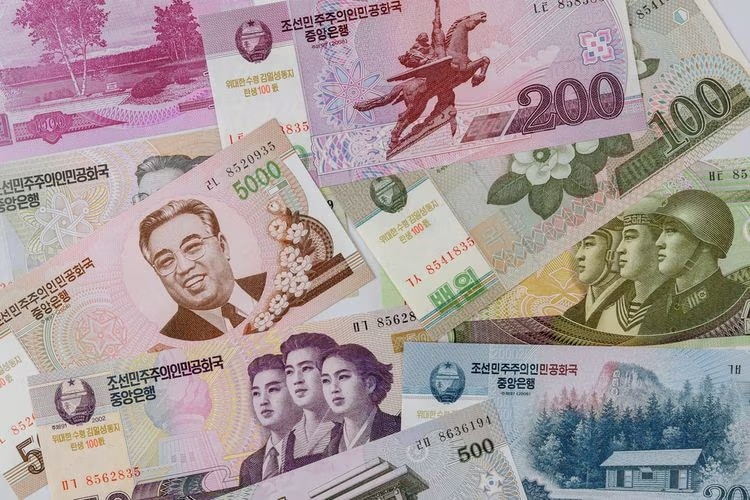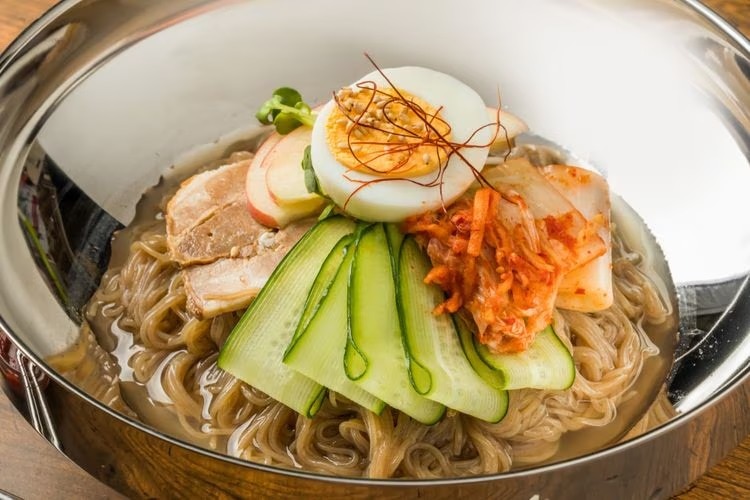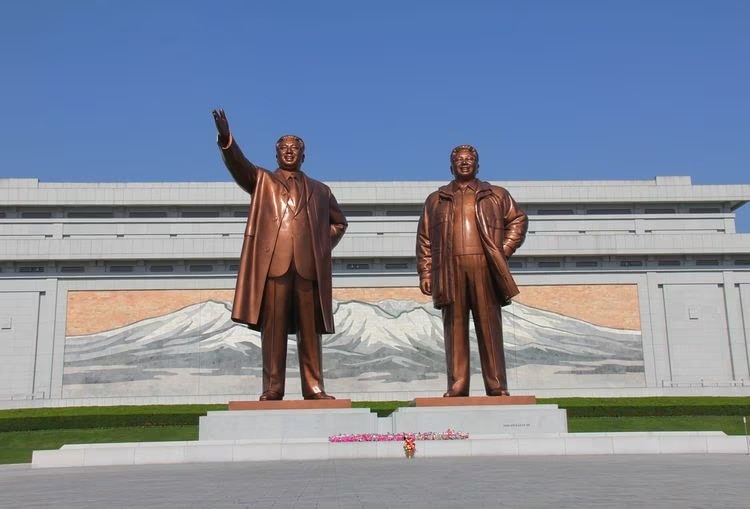North Korea Travel Tips and Information
Official Name
Democratic People's Republic of Korea
Capital
Pyongyang
Population
Country Code
Approximately 26.5 million
KP
Country Code (international calls)
+850
The flight time to North Korea is approximately ---- hours. Check the climate, currency, religion, manners, other information of North Korea below. Wishing you pleasant travels to North Korea.
North Korea occupies the northern half of the Korean Peninsula. Nearly 80% of the country is mountainous, and since it is sandwiched between the sea on the east and west, there are many rivers, large and small. Its neighboring countries are the People's Republic of China and Russia. Twenty-six member states of the United Nations do not recognize North Korea as a country.
Local Climate / Weather
North Korea has a temperate climate with four distinct seasons, each bringing unique weather patterns. Summers are typically warm and humid, with average temperatures ranging from 20°C to 26°C (68°F to 79°F) in July and August, and are accompanied by monsoon rains. Winters, on the other hand, are cold and dry, with temperatures often dropping below freezing in December through February, especially in northern regions. Spring and autumn are mild, making April to June and September to October some of the best times for travel, as these months feature comfortable temperatures and less precipitation, ideal for exploring the country's natural landscapes. For those planning a visit, it’s wise to consider seasonal travel advice. Spring (April to June) is particularly scenic, as flowers bloom and the weather warms, perfect for outdoor activities. Autumn, from September to October, offers mild weather and beautiful fall foliage, which draws visitors seeking scenic landscapes. Winter travel is generally discouraged due to harsh conditions, although some may find the snowy landscapes of certain regions appealing. Summer travel is possible but may be affected by monsoon rains, which could impact outdoor plans. North Korea celebrates several major events and festivals throughout the year, many of which are centered on political anniversaries. The Day of the Sun (April 15), celebrating the birth of Kim Il-sung, and the Day of the Foundation of the Republic (September 9) are among the largest and most widely celebrated holidays, featuring parades, performances, and other patriotic displays. These events offer a unique look into North Korean culture and are popular times for travelers interested in observing national celebrations. However, be prepared for larger crowds and heightened security during these periods.
Currency & Tipping
Currency
North Korea’s official currency is the North Korean Won (KPW), though it’s important to note that foreign visitors generally cannot use local currency directly for purchases. Instead, certain hotels, shops, and tourist locations accept foreign currencies such as Chinese Yuan (CNY), Euros (EUR), and sometimes U.S. Dollars (USD) for convenience. It’s best to carry cash, as credit cards and traveler’s checks are not accepted.
Tipping
Tipping is not part of the local culture in North Korea, and locals do not expect tips. However, for foreign tour guides and certain service providers, tipping can be acceptable and appreciated, typically given in small amounts. Travelers may choose to offer small gratuities to guides or drivers who accompany them on tours, though tipping should be done discreetly to respect local norms.
Useful Travel Information

Voltage & Electrical Outlets
In North Korea, the standard voltage is 220V, with outlets typically accepting two round-prong plugs, similar to those used in much of Europe and Asia. Travelers should bring an adapter and voltage converter if their devices aren’t compatible with this standard to avoid any inconvenience.

Internet Connectivity
The internet environment in North Korea is highly restricted for visitors. Access to the global internet is generally unavailable, with only a few specific locations offering limited, monitored connections. Travelers should plan to stay offline during their stay and prepare to communicate without internet access, as social media and foreign websites are typically inaccessible.
Water for Consumption (Drinking Water)
Drinking water in North Korea is not considered safe for visitors, so it’s recommended to stick to bottled water, which is widely available in hotels and tourist areas. Travelers should avoid drinking tap water, including when brushing their teeth, and ensure any bottled water purchased is properly sealed to minimize health risks.
Culture, Religion & Social Etiquette
Culture
North Korea’s culture and traditions are deeply rooted in its history and centered around the principles of socialism and nationalism. Art, music, and performances are often used to express loyalty to the country’s leadership, and visitors will observe grand monuments, patriotic displays, and traditional dances that reflect North Korea’s unique cultural identity.
Religion
In terms of religion, North Korea is officially an atheist state, and religious practices are restricted by the government. The country’s social system emphasizes loyalty to its leaders rather than religious beliefs, and public religious practices are rare. While there are a few state-sanctioned places of worship, these are generally more symbolic and highly controlled. Visitors, accustomed to a variety of faiths, may find North Korea’s approach to religion a notable difference.
Social Etiquette
North Korean manners are formal and respectful, especially when interacting with locals and officials. Visitors are expected to show politeness and avoid political discussions or behavior that could be seen as disrespectful toward the government or its leaders. Travelers should approach interactions with awareness and respect, maintaining a courteous and reserved manner in public settings, which will ensure a smoother experience while respecting local customs.
Food Culture
North Korea’s food culture offers a unique taste of Korean cuisine, with dishes focusing on rice, noodles, and locally sourced vegetables. Traditional meals often feature kimchi, cold noodles (naengmyeon), and hearty stews like kimchi jjigae. Although street food is less prevalent than in other countries, certain areas in Pyongyang may have vendors selling local snacks such as bbang (bread) and mandu (dumplings). Dining for tourists is typically arranged in state-approved restaurants that provide a curated selection of North Korean dishes. Popular restaurants in Pyongyang, such as the Okryu Restaurant, are recommended for authentic naengmyeon and other iconic dishes.
Major Tourist Attractions & UNESCO World Heritage Sites
Major Tourist Attractions
North Korea has a selection of major tourist destinations that offer a glimpse into the country's history and culture. Pyongyang, the capital, is home to landmarks such as the Tower of the Juche Idea and Kim Il-sung Square, both of which showcase North Korea’s unique architectural style and patriotic spirit. Travelers can also visit Mansudae Grand Monument, a significant site with impressive statues dedicated to the country’s leaders. For a nature escape, Mount Kumgang offers stunning landscapes and hiking trails, allowing travelers to experience the natural beauty of North Korea. The Demilitarized Zone (DMZ) is another popular destination, offering visitors a closer look at the boundary between North and South Korea and the complex history of the Korean Peninsula.
UNESCO World Heritage Sites
North Korea also boasts several UNESCO World Heritage Sites that reveal the nation’s cultural depth and historical significance. The Complex of Koguryo Tombs, for instance, provides a fascinating look into ancient Koguryo kingdom burial practices, with intricate wall paintings that depict life over a thousand years ago. Additionally, Mount Myohyang is a sacred mountain with ancient temples like the Pohyon Temple, which holds religious and historical significance. Travelers interested in history and archaeology will find these World Heritage Sites compelling, offering a unique perspective on North Korea's ancient past and rich cultural heritage.
Travel FAQs
What is the safety situation in North Korea like? What should travelers be careful of?
The safety situation in North Korea is generally stable for tourists, but travelers should strictly follow local laws and guidelines, avoid discussing politics or taking unauthorized photos, and stay with their official guides at all times to ensure a safe and respectful visit.




